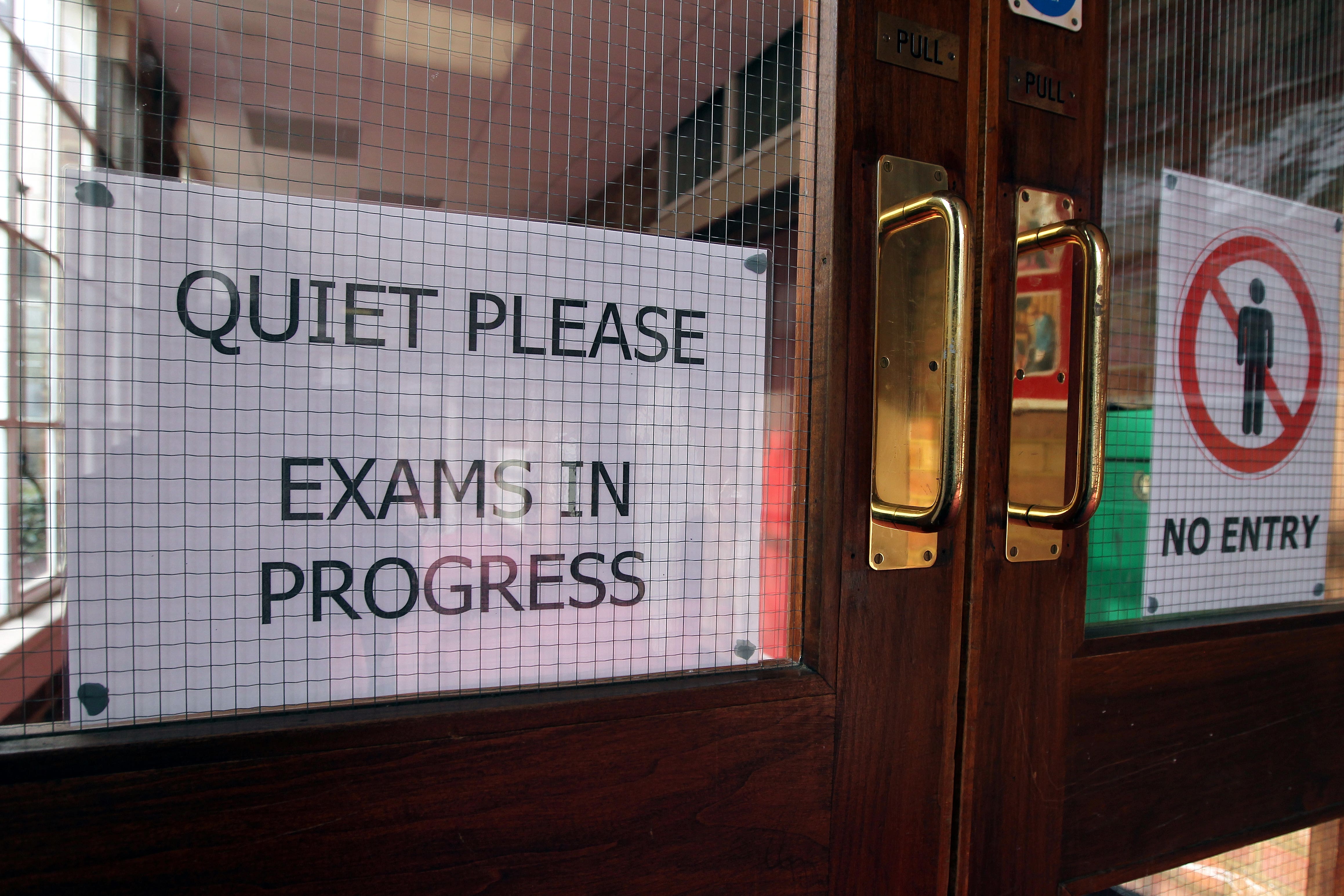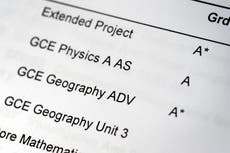GCSE pupils warned of 325,000 fewer passing grades after return to pre-Covid grading
Pass rate expected to be closer to 2019 levels after ‘great reset’ following rise during Covid lockdowns
Hundreds of thousands more teenagers are expected to be told they have failed one or more of their GCSEs on Thursday as the “exams reset” takes effect.
It’s estimated there will be 325,000 fewer passes than last year when results are released this week, and numbers achieving top grades are expected to drop by at least 300,000 against last summer’s results.
Teenagers in England, Wales and Northern Ireland will receive their GCSE results, which for many will determine whether they go to sixth form, college or training.
Covid-19 lockdowns led to an increase in top GCSE grades in 2020 and 2021, as results were based on teacher assessments, not exams.
The exams regulator has previously warned that this year’s grades will be lower than last, under government plans to return to grading levels of 2019.
Traditional A*-G grades are used in Wales and Northern Ireland, but in England they have been replaced with a 9-1 system, where 9 is the highest. A 4 is broadly considered equivalent to a C – or pass – and a 7 equivalent to an A.
GCSE pupils in the UK last year had a pass rate of 73.2 per cent, compared with 67.3 per cent in 2019.
Professor Alan Smithers, director of the Centre for Education and Employment Research at the University of Buckingham, said that if the GCSE pass rate returned to levels of four years ago, there would be 325,000 fewer overall exam passes, and more than 300,000 fewer top grades of 7 or higher.

In Wales and Northern Ireland, exam chiefs expect to return to pre-pandemic gradings next year.
In England, many pupils who fail English or maths GCSE must resit them until they leave school.
Prof Smithers said the fall in success rates would come as a shock and disappointment to many young people.
“They may take it personally and think they’re not good enough to do what they intended to do, but given that this is a great reset and it’s affecting all pupils this year, it might in the medium term be a healthy wake-up call because during the Covid years and softened exams last year, the top grades came too easily.
“With realistic goals young people may realise they have to work harder if they want to fully demonstrate their talent.
“With giveaway grades a lot of people got on to things they really weren’t that good at or didn’t enjoy. Quite a lot dropped out of university, for example, or were unhappy with A-Level studies,” he added.

He said he hoped schools and parents would explain that in relative terms they had still performed well.
And he called for a change to the forced English and maths retakes.
“It’s high time the government rethought this. They should ensure people leave school able to function optimally in life as an adult, for example in finance and basic maths – such as learning how to fill in tax forms, and to be able to communicate fluently.”
A government spokesperson said it was important that qualifications held value, ensuring the system treated pupils fairly.
“We remain committed to driving up standards as demonstrated by England’s continued rise up the international league tables in English and maths.
“This is so important as we know students who leave education with a good grasp of English and maths increase their chances of securing a job or going on to further study.”
Join our commenting forum
Join thought-provoking conversations, follow other Independent readers and see their replies
Comments


Bookmark popover
Removed from bookmarks